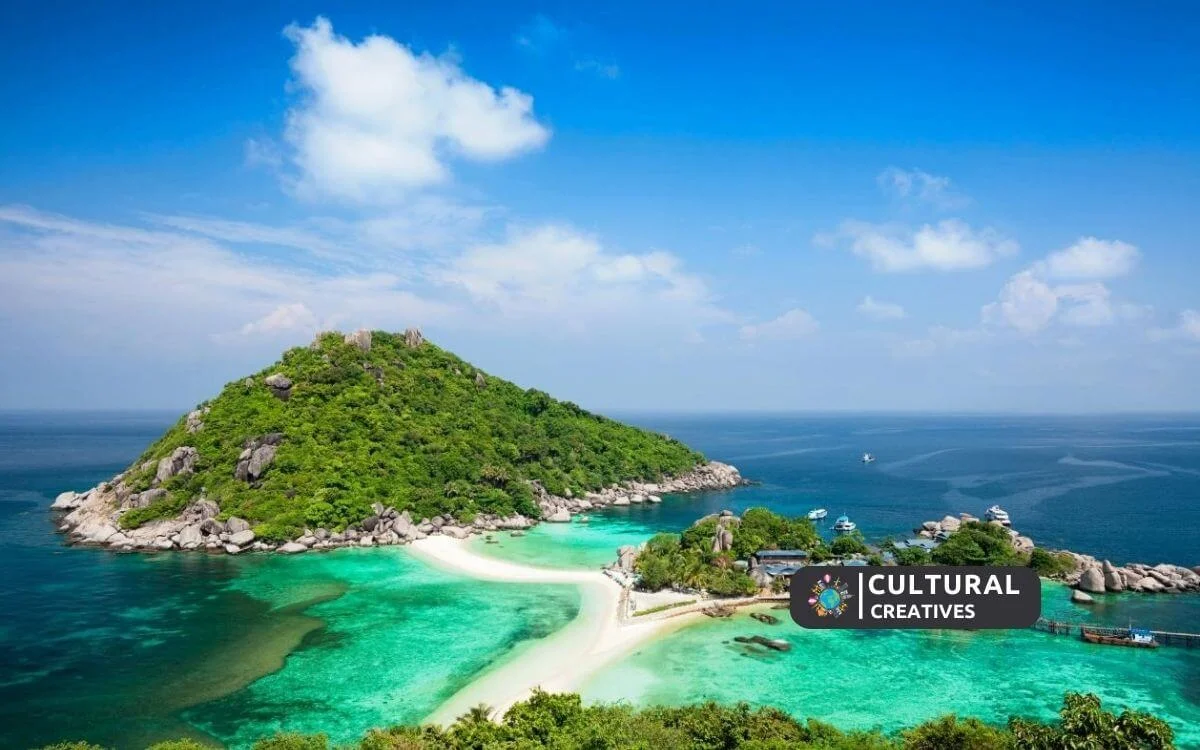Hawaii offers a high quality of life with its stunning natural beauty and pleasant climate. The cost of living, however, is relatively high in the islands.
Nestled in the Pacific Ocean, Hawaii stands as a tropical paradise admired for its lush landscapes, vibrant culture, and year-round sunshine. Famous for its stunning beaches and laid-back atmosphere, the Aloha State attracts those seeking a peaceful life amidst natural splendor.
The islands boast a diverse community, reflecting a melting pot of cultures that contribute to a unique local cuisine, festive traditions, and a friendly social environment. With outdoor activities ranging from surfing to hiking, residents embrace an active lifestyle. Yet, potential locals should consider the economic aspect, as Hawaii’s cost of living is high due to its remote location, leading to pricier goods and services. Despite this, the islands’ strong tourism industry provides numerous employment opportunities. Living in Hawaii could be your dream come true, but it requires financial readiness for its paradise costs.
Island Living In Hawaii: Pros And Cons
Embracing the island lifestyle in Hawaii promises adventure, tranquility, and breathtaking scenery. But, is Hawaii really the paradise to call home? Let’s explore the beauty and challenges that come with living in the Aloha State.
Natural Beauty And Weather
The islands of Hawaii are a tapestry of nature’s best work. From the lush rainforests to the serene beaches, there’s no shortage of wonders. Residents enjoy year-round summer temperatures, ideal for beach days or hikes. Yet, the beauty comes with natural hazards like volcanoes and occasional hurricanes. Below is a quick glance at what to expect from Hawaii’s environment:
- Gorgeous landscapes including beaches, mountains, and waterfalls.
- Outdoor activities such as surfing, hiking, and snorkeling.
- Temperatures average at a comfortable 75-85 degrees.
- Potential for volcanic eruptions and extreme weather.
Cost Of Living And Economic Factors
A crucial aspect to consider is the cost. Hawaii’s cost of living is notably high, influenced by its remote location. Essentials like groceries, housing, and gas have added costs due to shipping expenses. But there’s a silver lining: the local job market benefits from a robust tourism sector. Here’s a simplified breakdown of economic considerations:
| Factor | Impact |
|---|---|
| Housing | Expensive, yet varies by island and neighborhood. |
| Goods and Services | Higher cost due to import requirements. |
| Employment | Opportunities mainly in tourism and service industries. |
| Taxes | General Excise Tax affects most transactions. |
In summary, Hawaii offers a rich quality of life surrounded by natural splendor but requires thoughtful budgeting. By weighing these pros and cons, potential Hawaiian residents can better assess if island living aligns with their dreams and realities.
Hawaiian Culture And Community
Welcome to the heart of the Pacific where the warm breeze carries the essence of aloha. The Hawaiian culture and community offer a unique and vibrant lifestyle unmatched by any other. With a rich history and a melting pot of traditions, living in Hawaii means becoming part of a community that values connection, respect, and harmony.
Aloha Spirit And Its Meaning
The Aloha Spirit is the backbone of Hawaiian culture. It’s more than a greeting; it is a way of life. Embodying love, peace, and compassion, Aloha influences everything from daily interactions to state laws. The spirit ensures everyone feels welcome and valued in the community.
- Aloha is a deep respect for people and nature.
- It fosters a community where people support each other.
- Everyone lives with good intentions and harmony.
Cultural Diversity And Integration
Hawaii is a vibrant tapestry of cultures. This diverse blend stems from its history as a melting pot for various ethnicities. Native Hawaiian traditions beautifully intertwine with Asian, European, and Polynesian influences, creating a rich cultural landscape.
| Traditions | Origins | Impact on Community |
|---|---|---|
| Hula | Native Hawaiian | Preserves history and stories |
| Lantern Festival | Japanese | Brings families together |
| Luau | Polynesian | Celebrates life’s milestones |
Community events and festivals promote unity and understanding. They bridge gaps and knit people closely together. Schools teach children about cultural significance and respect from a young age. Hawaii’s future lies in its ability to adapt while preserving its historical roots.
Real Estate In Hawaii: What To Expect
Thinking about living in paradise? Hawaii offers more than stunning beaches and a laid-back lifestyle. Let’s dive into the real estate market in Hawaii and explore housing trends and the buying vs. renting debate. Make informed decisions whether you’re dreaming of a beachfront villa or a cozy townhome in the heart of Honolulu.
Housing Market Trends
Hawaii’s real estate market can be dynamic and challenging to navigate. Here’s what’s happening:
- High Demand: Properties often receive multiple offers.
- Limited Inventory: Fewer homes mean higher prices.
- Oceanfront Premium: Beachfront properties command top dollar.
- Interest Rates: They affect your buying power.
A snapshot of recent trends reveals that certain areas experience faster growth. Do your homework to spot these hotspots.
Buying Vs. Renting Considerations
Deciding between buying or renting in Hawaii is significant. Here’s what to weigh:
| Buying | Renting |
|---|---|
| Builds equity over time | Flexible, less commitment |
| More upfront costs | Lower initial expenses |
| Potential for property value increase | No worries about market fluctuations |
| Additional expenses like maintenance | Maintenance generally covered by landlord |
Consider your long-term goals, financial situation, and lifestyle preferences. For some, buying means a dream coming true. Others may find renting suits their need for flexibility.
Economic Opportunities And Challenges
Hawaii is not just a paradise for beach-lovers and surfers. It’s also a land of economic potential balanced with unique challenges. This section explores the flourishing employment sectors on the islands and the hurdles presented by infrastructure and development issues. Understanding these aspects can help you gauge the economic climate of Hawaii as a potential place to call home.
Employment Sectors Thriving In Hawaii
Hawaii’s economy is diverse. Key sectors include tourism, military defense, agriculture, and renewable energy. High-value crops like macadamia nuts and coffee bolster the agriculture industry. Hawaii also leads innovations in clean energy. Let’s break down these thriving sectors:
- Tourism: The backbone of Hawaii’s economy, creating a wide range of jobs in hospitality, retail, and tour services.
- Military: Significant military presence offers careers in defense and related support services.
- Agriculture: Specialty farming provides opportunities in both cultivation and research.
- Renewable Energy: Investment in solar and wind energy has sparked job creation in the green sector.
Infrastructure And Development Issues
Hawaii faces challenges affecting economic growth. Infrastructure strains involve aging roads, water systems, and energy grids. Development is complicated by the islands’ geography and the need to balance growth with environmental preservation. Details of these issues include:
- High Cost of Living: Prices for goods, services, and housing exceed mainland averages, impacting budgets and savings.
- Transportation: Limited roadways and traffic congestion pose problems for businesses and commuters alike.
- Housing: The demand for housing outpaces supply, leading to high real estate prices and rental rates.
- Environmental Regulations: Strict rules govern development to protect Hawaii’s natural beauty, impacting construction and expansion.
Outdoor Lifestyle And Recreation
Embrace the sun, sea, and natural splendor that make Hawaii a paradise for outdoor enthusiasts. Island living extends beyond beautiful beaches. It thrives in the rush of surfing, serenity in nature’s reserves, and awe atop volcanic peaks. Discover a lifestyle where every day feels like an adventure in this tropical haven.
Beaches
Hawaii’s beaches are legendary. Imagine golden sands as soft as powder. Picture turquoise waves gently hugging the shoreline. Whether it’s a serene sunrise or a stunning sunset, these coastal treasures offer endless relaxation and fun. From the iconic shores of Waikiki to the serene Hapuna Beach, every grain of sand tells a story of tropical bliss.
Surfing And Water Sports
Catch a wave and you’re sitting on top of the world in Hawaii. The islands boast some of the best surf spots on the planet. Novices and pros alike find the perfect swell here. Don’t just ride the waves – dive into snorkeling, paddleboarding, and kayaking. The ocean is your playground, and the adventures are limitless.
Hiking, Volcanoes, And Natural Reserves
- Explore tropical trails winding through lush forests.
- Stand in awe of the majestic Hawaiian volcanoes.
- Wander through protected parks where nature’s beauty remains untouched.
The islands’ diverse landscapes offer incredible hikes for all skill levels. From the breathtaking heights of Diamond Head to the vast wilderness of Volcanoes National Park, outdoor lovers find pure joy in these natural playgrounds.
Education And Health Care Systems
Imagine waking up every day to the sound of waves and the sight of lush landscapes. That’s life in Hawaii. But it’s not just about natural beauty. Hawaii also excels in education and health care systems. Families find comfort in knowing they have access to quality schools and medical services. Let’s explore the Hawaiian approach to education and health care.
Quality Of Education
Hawaii’s commitment to education is evident in its public schools, universities, and community programs. Students enjoy a culturally-rich learning environment. Unique courses like Hawaiian language and studies add to this. The state’s flagship campus, the University of Hawaii at Manoa, consistently ranks high for research and diversity. Smaller class sizes and a focus on STEM subjects prepare students for the future.
- Hawaii State Assessment: Strong performance in math and reading.
- School-to-Student Ratio: More attention to each student.
- Graduation Rates: Above national average.
Access To Health Services
Living in paradise comes with top-notch health care. Hawaii’s health care system ranks among the best in the nation. A mix of private and public facilities provides comprehensive care. Residents benefit from programs that promote wellness and preventive care. For emergencies, the state boasts reliable and responsive services.
| Health Factor | Hawaii Ranking |
|---|---|
| Life Expectancy | Longest in the USA |
| Uninsured Rate | Among the lowest |
| Health Care Quality | Top 10 Nationally |
Hawaii’s residents can trust in an educational system that prepares children for success and a health care system that ensures a healthier, happier life. This combination makes Hawaii more than just a stunning vacation spot—it’s a place to call home.
Conclusion
Living in Hawaii offers an unparalleled blend of natural beauty and warm aloha spirit. With its pristine beaches, cultural richness, and vibrant lifestyle, the islands present a unique opportunity for a fulfilling life. Embrace the tranquility and adventure that awaits in the heart of the Pacific.
Hawaii beckons as your potential new island home.






